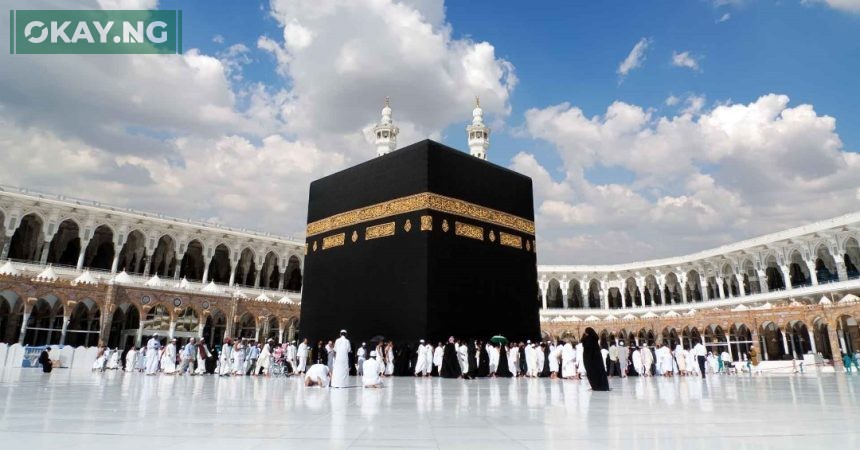The Nasrul-Lahi-l-Fatih Society of Nigeria (NASFAT) has strongly condemned the disrespectful behavior of some Nigerian Muslim pilgrims during the lesser hajj in Mecca, Saudi Arabia. NASFAT called for a change in conduct, emphasizing that such actions misrepresent the Islamic faith, okay.ng reports.
Viral videos on social media showed Nigerian pilgrims verbally abusing other nationalities in Yoruba while attempting to touch the Kaaba. Disturbing comments, including historical accusations and mockery of fellow worshippers, were captured in these videos. Additionally, the practice of recording and sharing spiritual activities on social media was also criticized as inappropriate.
NASFAT’s National Da’wah Officer, Abdul-Ganiy Raji, expressed deep disappointment, stating that pilgrimage should be conducted with reverence. He called for penalties for misbehavior, warning that irreverent acts could nullify prayers. “If one plays during solat, Allah won’t answer such a prayer. The irreligious acts by some Nigerians in Mecca are disturbing. People from across the world come for hajj and conduct themselves properly,” he said.
Raji attributed some of the misconduct to individuals with questionable wealth and criticized the commercialization of hajj. He also placed blame on private hajj operators for inadequate pilgrim screening, stating, “It is unfortunate that private organisations given slots by the National Hajj Commission do not screen those travelling for hajj. As a result, anyone with money—regardless of character—can go, even someone who is mentally unwell. NAHCON needs to address this issue.” He suggested that NAHCON should revoke the licenses of operators whose clients misbehave.
Dr. Sidiq Uthman, an Islamic cleric and lecturer at Lagos State University, linked the behavior to excessive materialism. He argued that many pilgrims might not fully understand the severity of their actions and that hajj agencies and coordinators should bear responsibility. He also criticized the influence of social media, noting the trend of “selfie spots” in places of worship.
Uthman further criticized some Muslim scholars for contributing to the problem by recording their prayers for the benefit of sponsors, arguing that such actions set a poor example.












